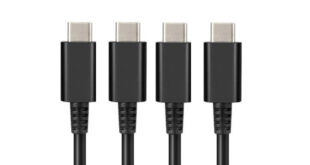Piers Harding-Rolls, head of games research at IHS Technology, questions whether Google’s latest Android-powered bid for the living room can disrupt the console rule of the PS4 and Xbox One…
Google has announced a new version of its TV and set-top box solution, named Android TV, and in doing so has placed itself fully behind the strategy of driving consumer adoption through games.
Central to Google’s ambitions for the living room is Android TV support and multi-screen features for Google Play Games, the company’s gaming community hub. The firm says the service (which launched 12 months ago) now has an audience in the hundreds of millions.
While much has been made of the smartphone and tablet disruption of the handheld market, the $15bn incumbent TV console games sector remains relatively unscathed so far.
Indeed, early sales of PS4 and Xbox One have been very strong and the recent E3 laid out a strong pipeline of content for consoles.
Alternative TV gaming solutions have come in the form of games through set-top-boxes – either simple apps or on-demand streamed games – and Android consoles. Neither of these have been able to generate any significant ripple of disruption: IPTV services are constrained to small catchment areas, while Android consoles have suffered with limited adoption due to a lack of compelling content.
However, it’s clear that the TV gaming sector could be significantly disrupted if one or more of the larger tech firms offered a solution to extend consumers’ ecosystems or if Valve was able to bring Steam effectively to the TV screen.
Following the Amazon Fire TV announcement, Google is the next major company to make a considered play for the living room using games. The mobile, tablet and payment ecosystem that Google has already built through its OS division is reason enough for the console incumbents to take any Android games initiative emerging in the living room seriously.
Still, much depends on Google convincing developers to make games for the big screen when it is not clear of the potential return from such investments. Porting mobile apps to the TV will not be enough to drive adoption.
As has been the challenge with previous Android-based TV platforms, the reliance on third-party companies to build the devices and market the products means that adoption is likely to be lumpy and difficult to predict. Additionally, there is likely to be some conflict of interest between specific partners, especially as there has been a more significant onus placed on gaming to drive adoption.

 MCV/DEVELOP News, events, research and jobs from the games industry
MCV/DEVELOP News, events, research and jobs from the games industry



